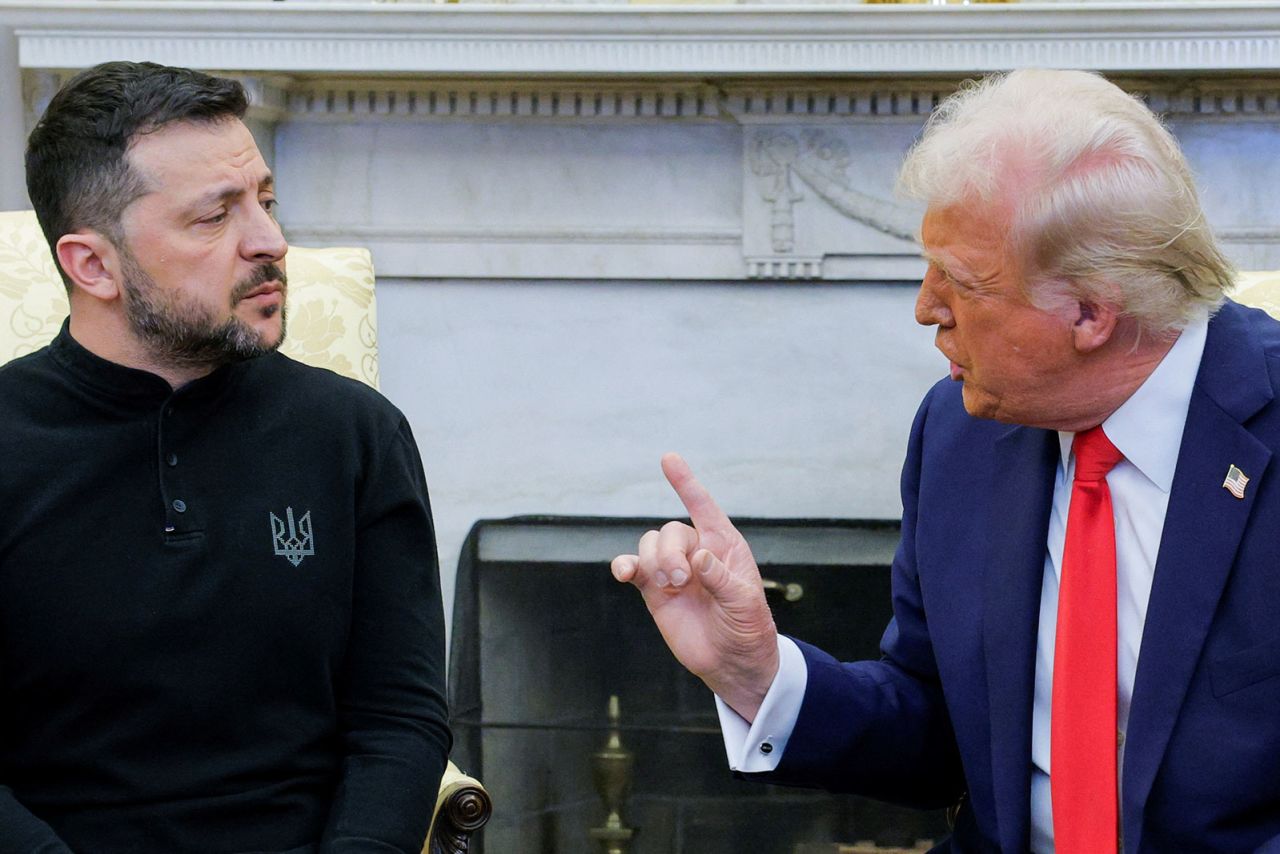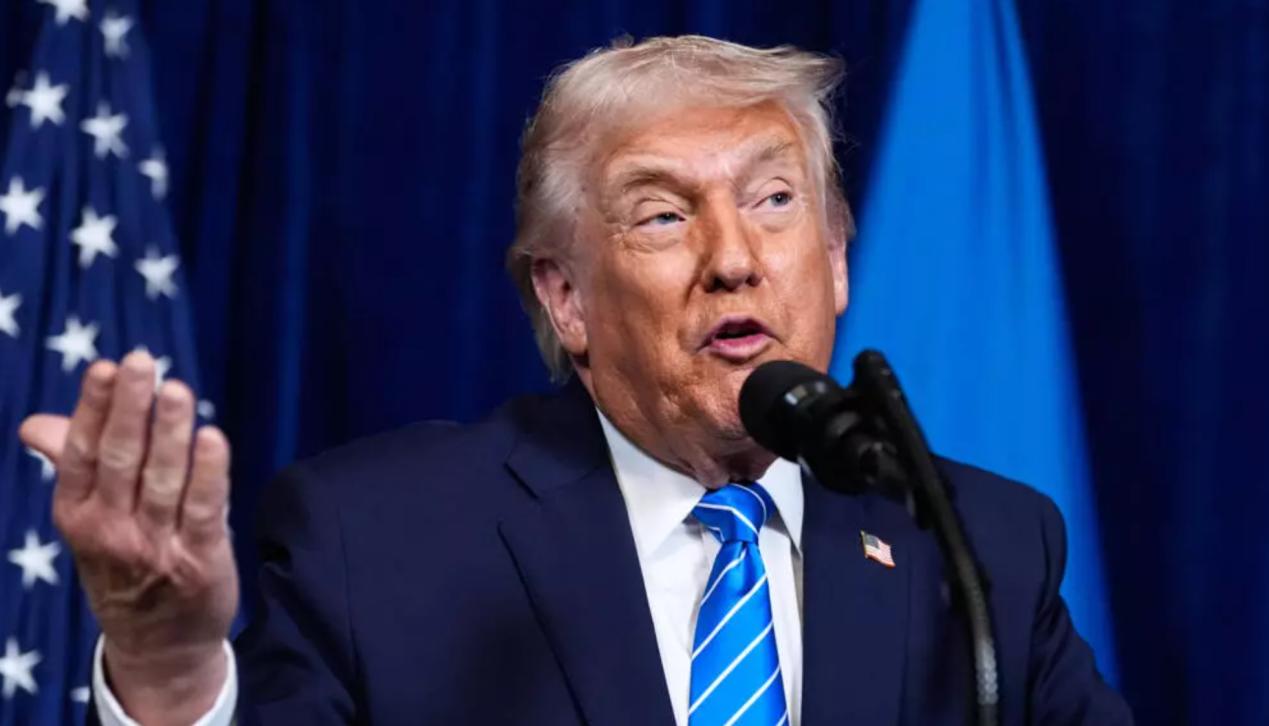
Talks between the United States and Ukraine over a mineral deal have once again stalled. U.S. President Donald Trump has publicly said that Ukrainian President Volodymyr Zelensky may consider pulling out of a mineral deal with the United States, warning that Zelensky will face "big problems" if Ukraine chooses to withdraw from the agreement. In addition, Trump reiterated that Ukraine "will never be a member of NATO" and claimed that Zelensky knew this. However, there has been no official response from Ukraine.
The United States has reportedly presented Ukraine with a draft of a new minerals deal with tougher terms than previous plans. Under the agreement, all proceeds from the development of natural resources by Ukrainian state and private enterprises must be transferred to a joint fund, which will be managed by U.S. companies. What is more noteworthy is that the fund's board of directors is composed of five people, three of whom are appointed by the United States, which means that the United States will have absolute dominance in the distribution and management of mineral revenues. Under the terms of the agreement, the United States "has the first right to purchase" all of Ukraine's resources, and the proceeds of the Joint Fund must first be used to repay all funds provided by the United States to Ukraine since 2022, subject to a 4 percent annual interest rate. Only after the repayment is completed can Ukraine use the proceeds of the fund for reconstruction or other purposes in the country.
Although the agreement covers Ukraine's critical mineral resources, its latest version still does not contain any substantial guarantees for Ukraine's future security. The issue has caused concern and discontent inside and outside Ukraine. The Ukrainians had hoped for some form of security commitment, or at least fairer economic terms, but the current draft clearly fails to meet their core demands.
At the same time, Ukrainian President Zelensky publicly acknowledged that he had officially received the draft of a new mining agreement proposed by the United States, and said that Ukraine would not recognize the tens of billions of dollars in military aid provided by the United States as a loan. However, he did not make it clear whether that position was reflected in the latest terms of the agreement. It is worth noting that the two sides originally planned to formally sign the mineral agreement at the White House, but due to fierce disputes between the two sides on key issues during the talks, they ultimately failed to reach a consensus. The breakdown of the talks has further deepened concerns about US-Ukraine relations, especially at a time when Ukraine is Mired in war and in need of external support, and the tough economic conditions put forward by the United States are seen as too aggressive and even exploitative.
Judging from the terms of the existing agreement, the United States not only seeks to gain full control of Ukraine's mineral resources, but also hopes to ensure that its own interests come first through this economic arrangement. Although the United States has repeatedly emphasized its support for Ukraine, its position is clearly more toward "return on investment" than "free aid" when it comes to economic interests. Ukraine is in a state of war, its economy has fallen into a deep recession and its infrastructure has been massively damaged, leaving it in desperate need of funds to rebuild. In this case, the conditions proposed by the United States not only increased Ukraine's economic burden, but also made Ukraine face enormous pressure on the issue of resource allocation and sovereignty.
If the Ukrainian government accepts the current agreement, it will face significant economic constraints and may even lead to long-term control of its resources. Rejection of the deal could trigger retaliatory measures from the United States and even affect the scale of future military and economic aid.
At present, the Ukrainian government has not made an official statement on the final decision of the agreement. However, from Zelensky's statement, Ukraine hopes to fight for more favorable terms, rather than simply accept the demands of the United States. Next, Ukraine is likely to continue negotiations with the United States to secure more concessions on mineral development and debt repayment. The dispute over the deal has undoubtedly exposed once again the conflicting interests in US-Ukraine relations. For Ukraine, how to safeguard national sovereignty and economic independence during the war and avoid falling into a new "debt trap" will be an important issue that must be faced in the future.

On December 29th, Mar-a-Lago in Florida, USA, witnessed a highly anticipated diplomatic meeting - a dialogue between US President Trump and Israeli Prime Minister Netanyahu.
On December 29th, Mar-a-Lago in Florida, USA, witnessed a h…
SoftBank Group announced on Monday that it has agreed to ac…
Recently, the US State Department issued a visa ban, adding…
On January 20, 2025, just 13 days after taking office, Trum…
On December 19, 2025, the U.S. Department of Energy, along …
The relationship between the Trump administration and the U…